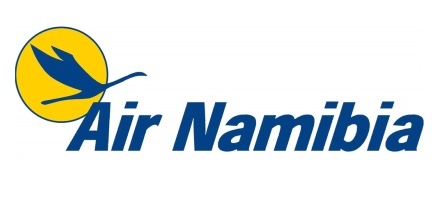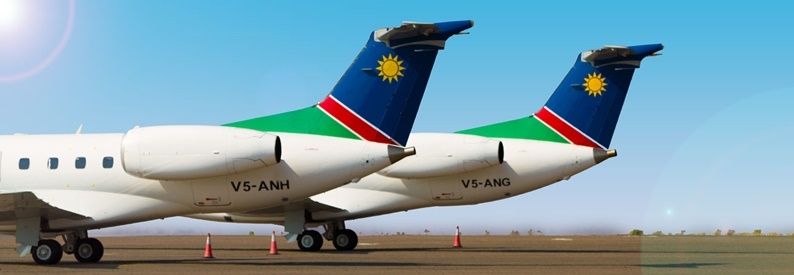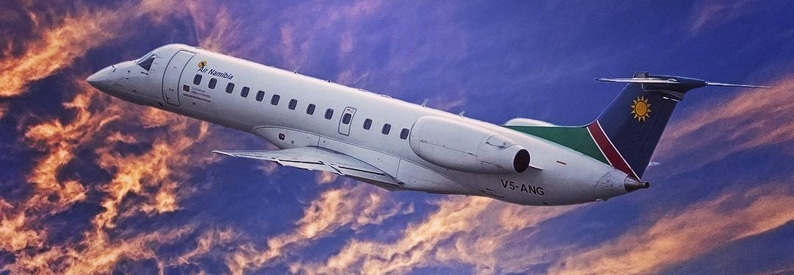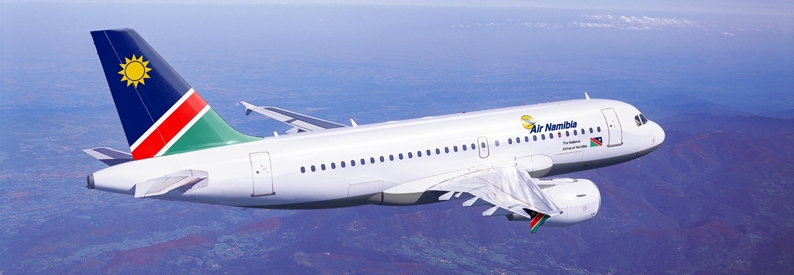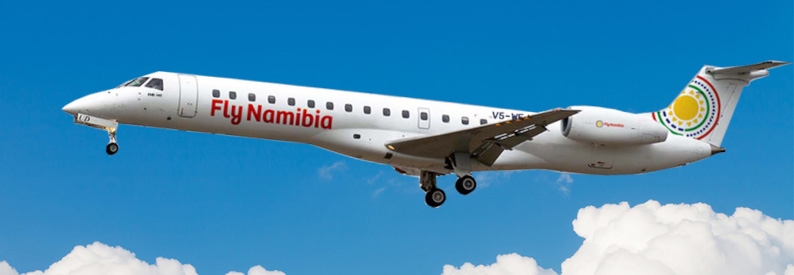Air Namibia (Windhoek International) is negotiating a state bailout, but has declined to confirm details of a rescue plan reportedly requiring NAD193 million Namibian dollars (USD11.6 million) to restart the airline following the country’s COVID-19 lockdown.
“At present, we are still negotiating with the shareholder about new figures, which are not yet finalised,” spokesman Twaku Kayofa told ch-aviation in response to a leaked document quoted by Namibia’s New Era newspaper. “The article is not the final position of the airline, therefore we can’t comment on its contents,” he said.
“Our operations have been negatively affected by COVID-19 due to the decrease in travel demand. Furthermore, the continued suspension of our regional and international flights have a detrimental effect on the airline’s already difficult cash flow position. We continue to redefine our strategy for the restart of all operations when borders are reopened eventually, notwithstanding the impact of COVID-19 on global traffic demand," Kayofa said.
He confirmed Air Namibia’s domestic operations restarted on September 20, 2020, serviced by a 37-seater E135 following the lifting of lockdowns on September 18 on Namibia’s Khomas and Erongo regions. He said Windhoek Eros to Walvis Bay flights were scheduled to restart on October 7. Air Namibia’s regional and international operations were suspended until September 20 and 30 respectively, but an announcement on the restart of operations would be made soon. Windhoek International re-opened on September 1, 2020, resulting in Ethiopian Airlines (ET, Addis Ababa International) and Eurowings (EW, Düsseldorf) resuming services, with Qatar Airways (QR, Doha Hamad International) returning on October 15.
Meanwhile, New Era reported the airline had submitted a revised draft business plan to the Namibian government for restarting operations with six aircraft (two A319-100s and four E135s) to serve only most viable routes initially, gradually growing to a full schedule. It planned to reduce its Frankfurt International services to 4x per week, but increasing to 7x weekly in the 2021/22 financial year.
According to New Era, the airline planned to extend its operating lease with Deucalion Aviation Funds for A319-100 V5-ANK (msn 3586) to improve cash flow. It was negotiating reduced fuel charges with suppliers at Eros; engaging with the Namibian Airports Company for a 50% reduction on airport charges for the next six months, and renegotiating a payment plan on outstanding invoices. It was also looking for a 50% reduction on aeronautical and safety charges for the next six months. Other measures being considered included reduced onboard catering, reducing staff medical benefits, replacing airline offices with general sales agents, introducing booking fees to recuperate GDS cost and renegotiating contracts where possible.
The report also claimed Air Namibia would “right-size” its workforce to meet traffic demand and had recently proposed a 50% salary reduction for staff. The airline declined to comment. “On internal related matters, we ought to engage and communicate with our employees first,” Kayofa said, adding that crew were working shifts and ground staff had returned to work. Management would be engaging with employees on the way forward, he said. This follows the recent resignation of Chief Financial Officer Werner Schuckmann and Paul Nakawa, Head of Corporate Communications and Stakeholder Management.
According to the draft plan, the airline owes NAD707 million (USD42.3 million) to suppliers. To resume operations, it needs at least NAD49 million (USD2.9 million) to pay local suppliers, including Engen Petroleum, the Namibia Civil Aviation Authority (NCAA), Namibia Airports Company (NAC) and Welwitschia Nammic Insurance, among others. Another NAD55 million (USD3.2 million) is needed to pay South African suppliers, including South African Airways Technical (SAAT), the Airports Company South Africa (ACSA), BidAir Cargo, and Swissport. It also owed money to international service providers Rolls-Royce, Embraer, CAMP, the International Air Transport Association (IATA) and Dunlop.
A further NAD47 million (USD2.8 million) was needed for ticket refunds, crew training, to pay auditors, for the restoration of ground equipment, and to pay defunct Belgian carrier, Challenge Airlines BE (X7, Liège), with whom it last year reached an out-of-court settlement following a long-running legal dispute.
